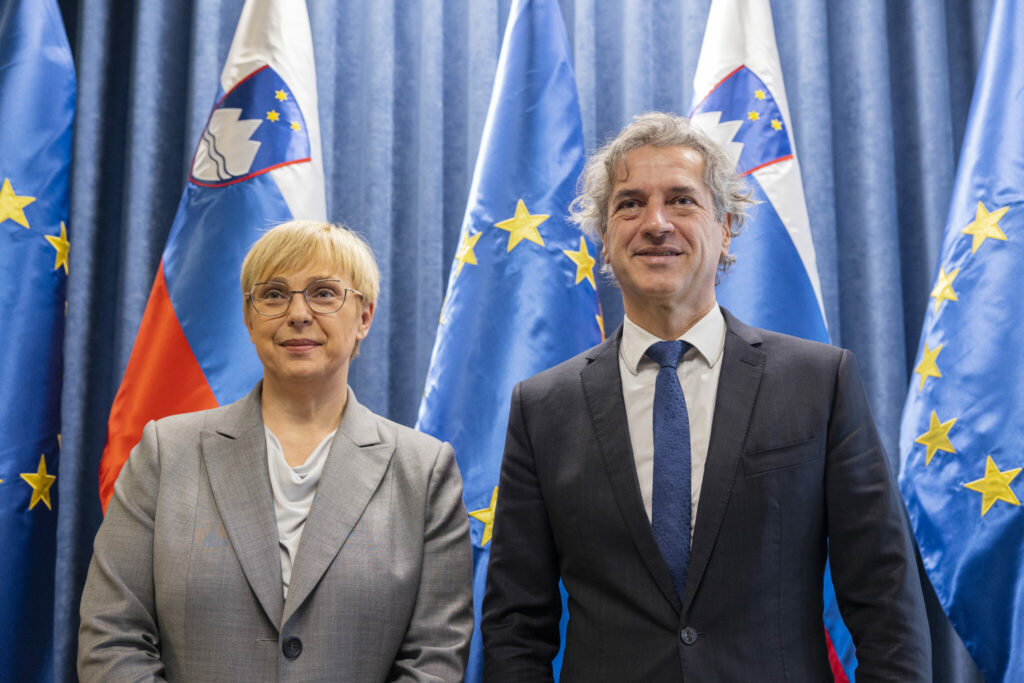work in Australia or own sheep or cattle farms, to our priests abroad, to foreign and Slovenian university professors abroad, to former interior ministers. I have maintained these contacts for more than a decade, some of them for more than two decades. For me, these contacts are an important orientation to better understand the thinking of Slovenians living abroad, and foreigners in general, but all of them share a common trait – critical thinking. They think critically about the situation in the countries they live in, and also about the situation in Slovenia. Exchanging opinions with them is valuable for me.
During the current government of Robert Golob, the number of contacts with all of them has increased significantly – on the one hand, they want information from me, but I also contact them more often and ask for their views on what is happening in Slovenia. In the following article, I will, therefore, share with you some of their views and thoughts on current political developments in Slovenia.
The first thing to note is that most of them do not understand what the President of the Republic, Nataša Pirc Musar, is doing. Every President must be the President of all citizens, regardless of who does and does not vote for them – and that applies to her, too. Former President Borut Pahor seemed to have transcended political divisions by being able to visit both the mass graves in Kočevski Rog, as well as Dražgoše, which was applauded abroad. However, Nataša Pirc Musar turned things upside down – for the worse. She made it clear that she would not be going to Kočevski Rog because, in her opinion, it is a one-sided representation and abuse of history. In doing so, she has, of course, denied the right to a grave and to dignity to tens of thousands of Slovenians who died there, as well as their descendants and relatives. Is this what the President of all Slovenians should act like? Of course not. However, she will, of course, go to Dražgoše, about which no one spoke for twenty years and more after the Second World War, and only then did the Communist rulers create a partisan myth out of the terrible fate of the local people. My interlocutors from abroad also do not understand the fact that she continues to pardon the organisers of illegal border crossings. Namely, Pirc Musar has pardoned the third convict who was involved in the illegal smuggling of people across our national border in recent days.
The government’s actions border on fantasy
Most of my interlocutors from abroad, of course, understand even less about the actions of the current government and wonder in surprise whether some of its actions are real or perhaps fake news. Allow me to name but a few examples.
At the beginning of his term in office, Golob announced the fight against the so-called Janšaists, meaning, against certain persons, but later corrected himself and instead spoke of Janšaism. My interlocutors do not understand what that is. Golob’s actions show that he is prepared to fire people from the civil service (which is clear from quite a few publicly known cases) – especially the police who are allegedly Janšaists, in illegal ways. But in doing so, he is engaging in nonsense. According to the testimony of the former Minister of the Interior, Tatjana Bobnar, he demanded from her the replacement of the head of the Police Specialties Directorate, Martin Jazbec, and the head of the police in Nova Gorica, Eugen Govekar. It is not known why these two were considered to be Janšaists. Neither of them was promoted during the last Janša government. I tell my interlocutors, of course, that Golob has the wrong sources in the police, especially former police officers, including those convicted of crimes, and that he believes them and not the police as an institution.
Many of my interlocutors’ questions also relate to the funding of non-governmental organisations (NGOs). What my interlocutors cannot understand is how it is possible that there is no money for doctors, nurses, civil servants, flood victims and anyone else, but there is money for NGOs, which have gotten rich in the meantime. My answer is quite clear, but it is difficult for my interlocutors to understand. It is not independent NGOs that Golob is paying for, but the NGOs or his street armies, which are, in fact, offshoots of the left-wing political parties that helped the Golob government to power.
Many of my interlocutors also ask about border security. The number of illegal migrants has already exceeded 50,000, which is by far the highest number since the year 2000, when we recorded 35,000 illegal migrants (2015 is an exception, as that was an organised state transport of illegal migrants from Brežice to Šentilj), and with the closure of the borders of Austria, Italy and Germany, it is clear that illegal migrants will soon flood Slovenia. There is nothing I can do but agree with their opinions. They, on the other hand, remain astonished.
My interlocutors, however, understand the socialist measures of the current government quite well. I am, of course, referring to the expulsion of capital and capitalists from Slovenia, the increase in taxes and the lowering of wages, the control of workers (work time records), the ever-increasing costliness and the ever-lowering standard of living of the people, as well as the political raping of the police and the control of the media. All this is understood by my interlocutors, who make it clear that this is a return of Slovenia to socialism. I agree with them, and I comfort them by saying that this cannot last for long.
Dr Vinko Gorenak


